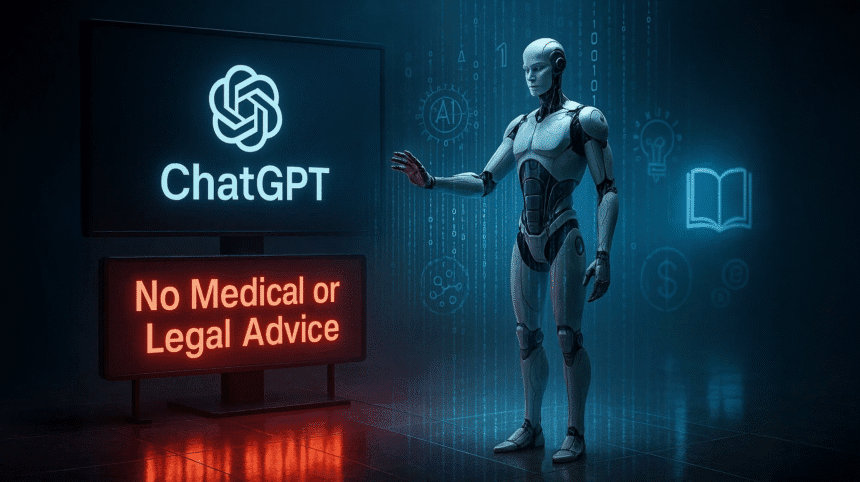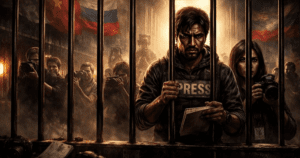OpenAI has announced that ChatGPT will no longer give medical, legal, or financial advice. The decision will be effective from October 29, comes as Big Tech companies face growing legal and regulatory scrutiny over the real-world consequences of AI-generated information.
AI Under Legal Pressure
For years, users have turned to ChatGPT for answers to everything from mysterious rashes to tax questions. But the company now says the chatbot will act strictly as an educational tool, explaining concepts rather than offering personal guidance. According to reports, the change was driven by fears of lawsuits and liability risks. Regulators around the world have warned that AI platforms blur the line between information and advice and that one wrong answer could have serious consequences.
The New Rules: No Prescriptions, No Portfolios, No Paperwork
ChatGPT’s updated restrictions are clear: it will no longer name medications, suggest dosages, draft legal contracts, or give investment tips. Instead, users will be directed to consult certified professionals. The model can still explain how laws work, what an ETF is, or the basic principles of therapy, but will stop short of personalized advice.
This move follows years of concern that people were relying too heavily on AI for serious decisions. In some cases, users have reportedly mistaken ChatGPT’s confident tone for accuracy which is a risky assumption given that the model is known to “hallucinate,” or produce incorrect information.
Risks Beyond Wrong Answers
Experts say the new policy is as much about privacy as it is about accuracy. Users sometimes feed ChatGPT sensitive details like income data, legal disputes, or health symptoms, unaware that this information may be stored on external servers. Once shared, that data could potentially be accessed or used in future AI training, raising questions about confidentiality.
A Safer, Narrower Future for AI
While some users may view this as a limitation, analysts believe the update is necessary to protect both users and companies. “AI should assist learning, not replace licensed professionals,” one tech policy expert said.
OpenAI’s move could also signal a broader industry trend, one where chatbots focus on education, writing, and creativity, leaving life-altering advice to humans. The message is clear: ChatGPT can help you understand the world, but it can’t decide for you.
















